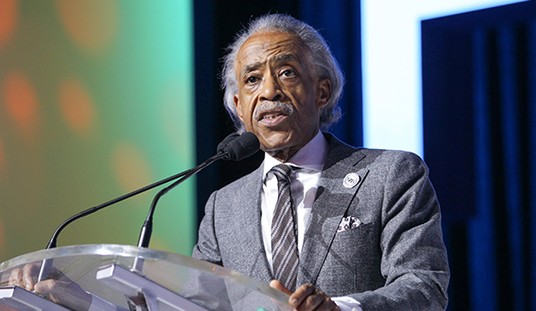Xinhua reports that Russia is opposed to enacting any sanctions against Iran in response to its crackdown on protesters decrying election cheating. That’s not surprising. But what is surprising is who else seems to agree with Russia. Haaretz quotes diplomatic sources in New York as saying that the Obama administration is going to block moves at the coming G8 summit to impose financial sanctions on Iran.
“Moscow is against imposing sanctions on Iran over the alleged crackdown on protests following the country’s controversial presidential elections, a spokesman for the Russia Foreign Ministry said on Thursday. “We believe that sanctions against Iran over its internal political problems would be unlawful and counter-productive,” Andrei Nesterenko told a regular press conference. Such a move would provoke unwelcome events in the country and the region, the spokesman said, adding that all disputes should be addressed through legal means. Italian Premier Silvio Berlusconi said earlier that the upcoming meeting of the Group of Eight leaders in central Italy would discuss possible sanctions against Iran for its crackdown on election protests.
The Haaretz report says:
The United States is opposed to enacting a new set of financial sanctions against Iran that are due to be discussed in the G8 summit next week, diplomatic officials in New York reported Friday. According to officials, sanctions against Iran are expected to top the G8’s agenda. Sources are also predicting a pointed debate between the heads of the industrialized nations over an appropriate response to Iranian authorities’ suppression of reformist demonstrations in Iran led by Mir Hossein Mousavi and other Iranian opposition leaders.
Italian Prime Minister Silvio Berlusconi hinted in a newspaper interview earlier in the week that the G8 is due to decide on new financial sanctions against the Islamic Republic. Berlusconi disclosed that he had spoken with the heads of the G8 nations and has discussed such steps with them.
If true, this raises the interesting question of where it puts US policy with respect to that of its long time transatlantic partner, the United Kingdom. The Times Online describes the rift within the EU over how to tackle Iran. After employees of the British embassy were arrested by Iranian authorities, the British pushed for a strong statement of condemnation from the EU, but was notably cold-shouldered by Germany and Italy. Berlusconi’s statements about the forthcoming debate suggest that there will be some kind of showdown over the issue. With the US, Germany, Italy and now the US (if Haaretz is accurate) moving to conciliate Iran, then the UK will to all intents and purposes be isolated. The Times Online article says:
The EU was very quick to condemn Iran for the way it cracked down on presidential election protests last month. But EU co-ordination began to break down with the arrest of nine British embassy staff.
Britain won a strong statement under the Czech EU presidency. A British request for the mass withdrawal of EU ambassadors remains on the table, but in some capitals this measure is seen as too aggressive.
The EU is Iran’s largest trading partner with exports worth €11 billion. The two biggest opponents of sanctions have been Germany and Italy, which do the most business with Iran.
As I’ve written before the momentum behind “engagement” is all the handshake deals that have already been done up to this point. Ironically, the elections in Iran are also about money; what was at stake was the economic dominance of two rival groups in Iran, both probably salivating over the possible lifting of sanctions. Recent events in Iran may mean that lifting sanctions must await a “decent interval”, but it’s easy to see how Iran’s “partners for peace” may be eager to keep further sanctions from being imposed.










Join the conversation as a VIP Member